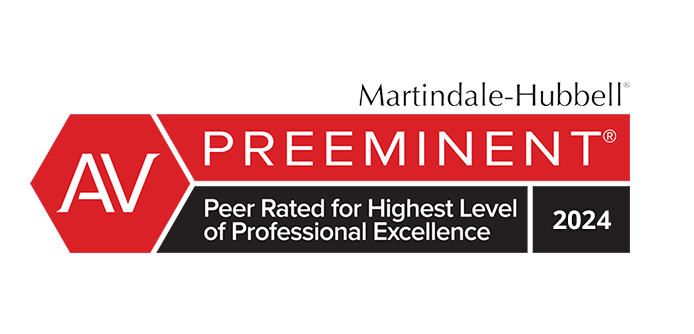- Home
- Practice Areas
- Litigation
- Adverse Possession
- Breach of Fiduciary Duty
- Business & Corporate Disputes
- Co-Counsel
- Commercial Litigation
- Construction Change Orders
- Construction Defects
- Contract Disputes
- Copyright & Trademark Infringement
- Evictions
- Failed Home Inspections
- General Civil Litigation
- Landlord Tenant Disputes
- Latent Defects
- Mechanic’s Liens
- Non-Compete Agreements
- Partition Actions
- Partnership Disputes
- Post-Judgment Collections
- Probate
- Quiet Title Actions
- Shareholder Agreement Disputes
- Business Law
- Asset Purchases
- Business & Corporate Disputes
- Business & Corporate Formation
- Business Outside In-House Counsel
- Business Sales & Purchases
- Buy-Sell Agreements
- Business Succession Planning
- Commercial Debt Collections
- Commercial Leases
- Commercial Litigation
- Commercial Real Estate
- Commercial Transactions
- Contract Disputes
- Contract Drafting
- Copyrights & Trademarks
- Corporate Bankruptcy
- Dissolution Actions
- Franchise & Dealership Law
- General Business Law
- General Partnerships
- Limited Liability Companies
- Limited Partnerships
- Mergers & Acquisitions
- Non-Compete Agreements
- Partnership Disputes
- Post-Judgment Collections
- Promissory Notes
- Shareholder Agreements
- Startups #GAStartupLawyer
- Sweepstakes & Prize Contests
- Real Estate Law
- Adverse Possession
- Commercial Leases
- Commercial Real Estate
- Construction Change Orders
- Construction Defects
- Contract Disputes
- Deed Drafting
- Evictions
- Failed Home Inspections
- HOA & COA
- Landlord Tenant Disputes
- Latent Defects
- Lease Purchases
- Mechanic’s Liens
- Partition Actions
- Promissory Notes
- Quiet Title Actions
- Seller Financing
- Short Sales
- Estate Planning
- Litigation
- Our Team
- Testimonials
- Blog
- Contact
- Contact Us
- Call Us: 678-882-0830
Our Atlanta real estate attorneys help buyers and sellers across Georgia with seller-financed transactions. We draft and review agreements to ensure compliance with state and federal law while protecting your financial interests.
Schedule a Consultation
Our Atlanta real estate attorneys help buyers and sellers across Georgia with seller-financed transactions that are legally sound and tailored to your goals. Whether you are a homeowner offering financing or a buyer considering this path to ownership, we guide you through every step to protect your interests.
What is Seller Financing?
Most home purchases involve a traditional mortgage from a bank or financial institution. Seller financing (also called owner financing or seller carryback) is different. In this arrangement, the seller acts as the lender. Instead of making payments to a bank, the buyer makes monthly payments directly to the seller.
At closing, the buyer takes title to the property, but the seller keeps a lien until the debt is fully repaid. Because the terms are negotiated between the parties, seller financing offers flexibility that banks often do not.
Benefits of Seller Financing for Buyers
For many buyers, strict mortgage requirements can be a barrier. A low credit score, high debt-to-income ratio, or limited down payment may prevent loan approval. Seller financing can open the door to homeownership by offering:
Flexible eligibility requirements
Negotiable terms for repayment, interest rates, and closing costs
A faster and more straightforward closing process
Benefits of Seller Financing for Sellers
Offering financing can also be an advantage for sellers. It allows you to:
Expand the pool of potential buyers
Spread out capital gains taxes over time
Sell the property “as is” without costly repairs required by lenders
Collect interest income on the loan
Risks and Pitfalls of Seller Financing
Both buyers and sellers should be aware of potential downsides.
For buyers:
A higher interest rate than traditional mortgages
Fewer built-in protections, such as a mandatory clear title search
For sellers:
Delayed payment of the full purchase price
Risk of buyer default, which may lead to foreclosure and added costs
Due to these risks, having an experienced Atlanta real estate attorney draft and review the agreement is crucial.
Seller Financing and Georgia Law
Georgia follows the federal SAFE Act, which limits who can make mortgage loans. However, there is an important exemption: individuals selling their own property can offer financing without being licensed, as long as the property is owned personally (not by an LLC or corporation).
This means that many Georgia homeowners can legally use seller financing; however, the agreement must still comply with state law to be enforceable.
Why Work With a Georgia Seller Financing Attorney
At Thrift McLemore, we make sure your seller-financed transaction is structured properly and protects your rights. Our attorneys:
Draft and review seller-financing contracts
Ensure compliance with Georgia and federal law
Explain risks and obligations clearly
Negotiate terms that protect your interests
Help prevent disputes or costly litigation
Speak With an Experienced Atlanta Seller Financing Attorney
If you are considering a seller-financed sale in Georgia, do not move forward without legal guidance. A well-drafted agreement can create opportunity, while a poorly written one can create years of risk.
Call 678-882-0830 today to schedule a consultation with one of our Atlanta real estate attorneys. We proudly serve buyers and sellers across Georgia.
Have a Question?
Have a legal question about Seller Financing? Call us at (678) 882-0830.
Relevant News & Insights
New Requirements for Out-of-State Landlords with Georgia Rentals
If you’re an out-of-state landlord with rental property in Georgia, a new law may significantly affect how you manage your properties.
READ MOREGeorgia’s Right to Repair Act: What Homeowners & Contractors Need to Know
Understanding Georgia’s Right to Repair Act is essential for homeowners and contractors facing construction disputes.
READ MORELegal Tips for Private Lenders: Mitigating Risk When Investing in Real Estate
Investing in Atlanta real estate can be a profitable venture; however, it also comes with default risks. To protect against default risk, investors should conduct due diligence, use clear contracts, assess finances regularly, and work with an experienced real estate attorney.
READ MOREPatricia Roy Presenting on Navigating Partition Actions CLE Program
Thrift McLemore is proud to share that Atlanta real estate attorney Patricia Roy will present a CLE on Georgia partition actions on March 14. She will cover pre-suit considerations, the partition process, and best practices for resolving property co-ownership disputes.
READ MOREBuilding a New Custom Home? Talk to an Attorney FIRST and Save Yourself Money
Building a custom home is a complex process with numerous potential legal and financial pitfalls. An experienced Georgia real estate attorney can help protect your interests and avoid costly mistakes.
READ MORETop 10 Questions Answered About Quiet Title Actions in Georgia
Atlanta real estate attorneys at Thrift McLemore answer questions about quiet title actions in Georgia, typically used to resolve property disputes, clear title defects, and establish rightful ownership to property.
READ MORE
© 2025 Thrift McLemore. All Rights Reserved.














